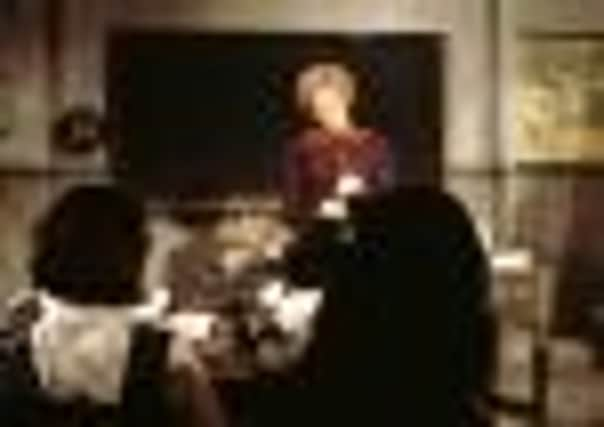The power of speech


A YEAR ago, author David Torrance left a plea on his Facebook page asking visitors to identify Great Scottish Speeches. The speech had to have been delivered by a Scot, or in Scotland. Within days he was inundated with replies that themselves made for a lively discussion, as people argued on behalf of their favourites.
The project came about when he noticed that there were books of great Irish speeches, great British speeches, and speeches that changed the world – with an obvious gap in the market. “Scotland’s had a fairly colourful history, and that has given rise to equally colourful oratory,” he tells me.
Advertisement
Hide AdWhat is it that makes a speech great? Speechwriter Martin Shovel, who blogs at www.creativityworks.net, says: “For me, the most important ingredient is the words. Great speeches use visual language – words that help people ‘see’ what the speaker means – to move and persuade an audience. It’s an example of the well-known dictum: good writing doesn’t tell, it shows.
“Of course, performance matters, but I believe a well-written speech averagely performed will work; whereas a poorly written speech brilliantly performed will result in little more than hot air. Great speeches are also about historical timing: the right person, delivering the right speech at a critical time – eg Churchill’s ‘we shall fight on the beaches. …’, following the defeat at Dunkirk.”
The earliest speech in this collection was reportedly given by Calgacus in 83 or 84AD, before the battle of Mons Graupius. The most recent comes from First Minister Alex Salmond – who also furnished a foreword to the book – following the 2007 Holyrood election.
Alongside the memorable words of Margaret Thatcher, speaking to the General Assembly of the Church of Scotland in 1988, and Malcolm Muggeridge’s sermon at the High Kirk of St Giles’, readers will also find Mark Renton’s “I Hate Being Scottish” speech from Irvine Welsh’s Trainspotting, and Miss Jean Brodie’s farewell speech, from Muriel Spark’s The Prime of Miss Jean Brodie, both set in Edinburgh.
“I did that deliberately, to try to broaden the selection,” says Torrance. “It struck me that the monologue from Trainspotting has always stuck in my mind, as has the Brodie speech, and Macbeth’s. To me they’re still Scottish speeches – there’s nothing that says a speech has to have been delivered in reality.”
Is there a typically Scottish style of rhetoric? In his preface, Professor David Purdie says that Scottish audiences “particularly enjoy that magic mixture of education and entertainment when served up and garnished with the sauce of wit and analogy.”
Advertisement
Hide AdTorrance says: “For me, the archetypal Scottish speech would be an expression of defiance or opposition of some sort of injustice, whether political, social, or humanitarian. The archetypal speech would be delivered by a trade unionist, or a Red Clydesider, or indeed, by a nationalist – a fiery opposition to the state and/or some figure of authority.”
No doubt Scotsman readers will have strong feelings about what should and shouldn’t have been included in this book, or indeed, what constitutes the best Scottish speech. Torrance has narrowed down the 65 or so selections from his book into a shortlist, which you can see at www.greatscottishspeeches.co.uk.
Advertisement
Hide AdYou have until midnight on 28 November to vote for the Top Ten Scottish speeches of all time. Winners will be announced at the Scottish History Festival at 10am on St Andrew’s Day, 30 November, www.historyfest.co.uk.
A showcase organised by David Torrance, introduced by Prof Purdie with readings by Iain Agnew will take place on Tuesday at 5:45pm, Waterstone’s West End, Princes Street, Edinburgh. Admission free.
• Great Scottish Speeches is out on 1 November, from Luath Press, £16.99.